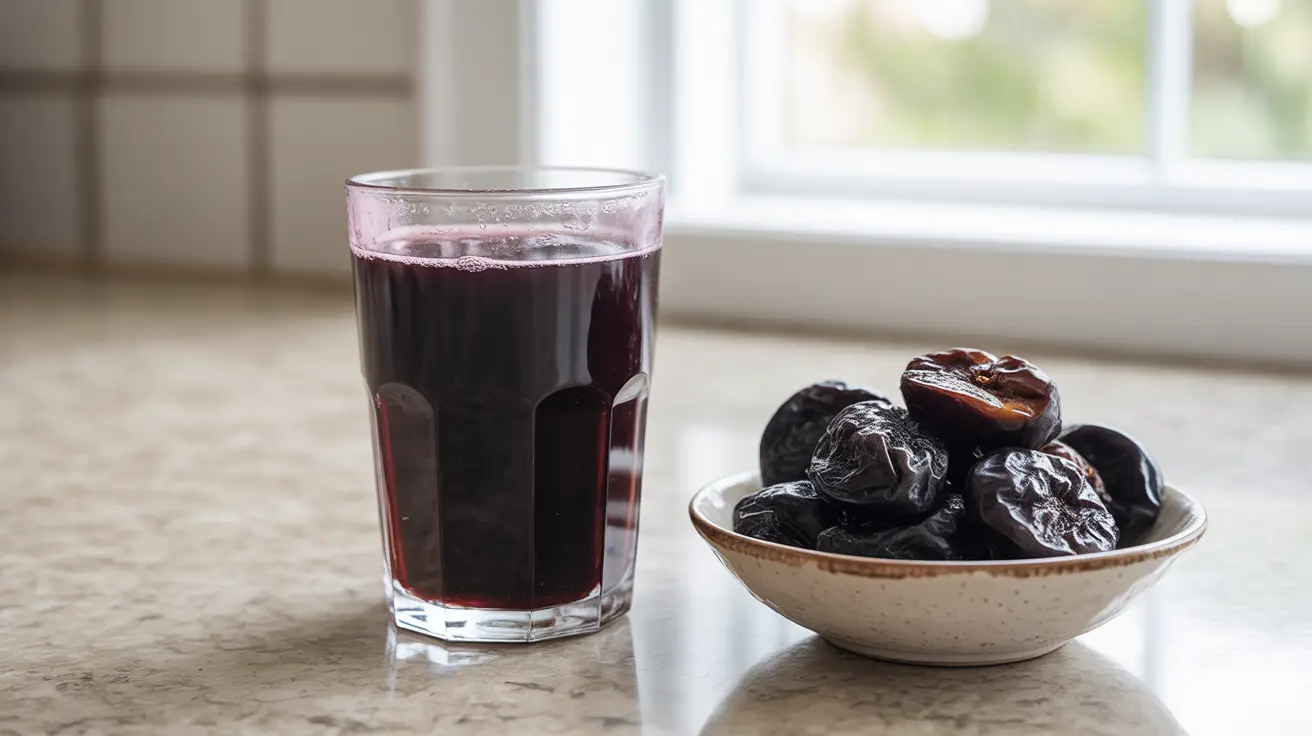Constipation is a common digestive issue that can significantly impact daily life and overall well-being. For those seeking a natural remedy, prune juice has emerged as a promising solution to help alleviate this uncomfortable condition. This comprehensive guide explores how prune juice can provide relief and support digestive health.
Understanding the potential benefits of prune juice can offer a gentle, natural approach to managing constipation and improving digestive function.
How Prune Juice Works to Relieve Constipation
Prune juice is more than just a tasty beverage – it's a powerful natural remedy for digestive discomfort. The juice contains several key components that work together to promote bowel regularity:
Natural Laxative Components
- Sorbitol: A natural sugar alcohol that draws water into the intestines
- Pectin: A soluble fiber that acts as a prebiotic
- Polyphenols: Compounds that support overall digestive health
- Cellulose: Helps increase stool water content and stimulate gut movement
Scientific Mechanism of Action
The unique combination of nutrients in prune juice creates a multi-faceted approach to relieving constipation. Sorbitol acts as a natural osmotic laxative, essentially drawing water into the intestines to soften stools and promote easier passage. The fiber content helps bulk up stool and supports the growth of beneficial gut bacteria.
Clinical Evidence of Effectiveness
Recent research provides compelling support for prune juice as a constipation remedy. A 2022 clinical study involving 84 participants demonstrated significant benefits from daily prune juice consumption. Participants who consumed approximately 54 ml of prune juice daily over eight weeks experienced:
- Improved stool softness
- Increased bowel movement frequency
- No significant adverse effects like diarrhea or excessive flatulence
Recommended Usage and Dosage
While there are no official guidelines for prune juice consumption, clinical research offers some helpful insights. Most studies suggest a moderate approach:
Optimal Consumption
- Approximate daily intake: 54 ml (about 2 ounces)
- Best consumed consistently over several weeks
- Monitor individual response and tolerance
Important Considerations
It's crucial to be mindful of prune juice's nutritional profile. The beverage contains approximately 5 grams of sugar per 31-gram serving, which may be a consideration for individuals monitoring their sugar intake or managing blood sugar levels.
Potential Limitations and When to Seek Medical Advice
While prune juice can be an effective remedy for mild constipation, it's not a universal solution. Individuals experiencing severe or persistent digestive issues should consult a healthcare professional.
Warning Signs Requiring Medical Consultation
- Fewer than three bowel movements per week
- Consistently hard or lumpy stools
- Persistent constipation lasting more than two weeks
- Accompanying abdominal pain or discomfort
Frequently Asked Questions
How much prune juice should I drink for constipation relief?
Most studies suggest consuming around 54 ml (2 ounces) daily. Start with a smaller amount and gradually increase to assess your individual tolerance and response.
Are there any side effects of drinking prune juice regularly?
While generally safe, excessive consumption can lead to digestive discomfort, bloating, or increased gas. The high sugar content may also be a concern for those managing weight or blood sugar levels.
How quickly does prune juice work for constipation?
Response times vary, but many individuals experience relief within a few hours to a few days of consistent consumption. Individual factors like diet, hydration, and overall health can influence effectiveness.
Is it better to eat whole prunes or drink prune juice for constipation?
Both whole prunes and prune juice can be effective. Whole prunes retain more fiber, which might provide additional benefits. However, prune juice can be more convenient and easier to consume for some individuals.
Can prune juice help with severe constipation or should I see a doctor?
Prune juice is most effective for mild constipation. For severe or persistent issues, it's essential to consult a healthcare provider to rule out underlying conditions and receive personalized treatment.




